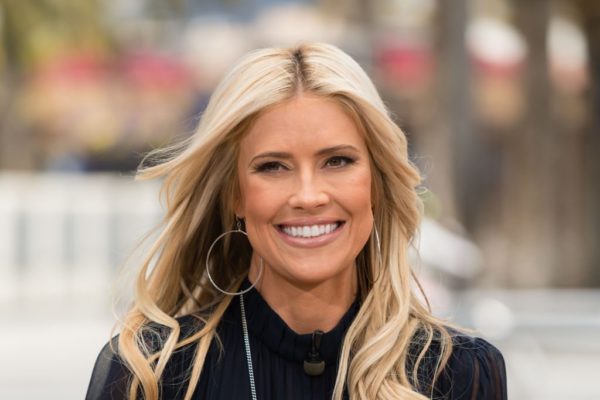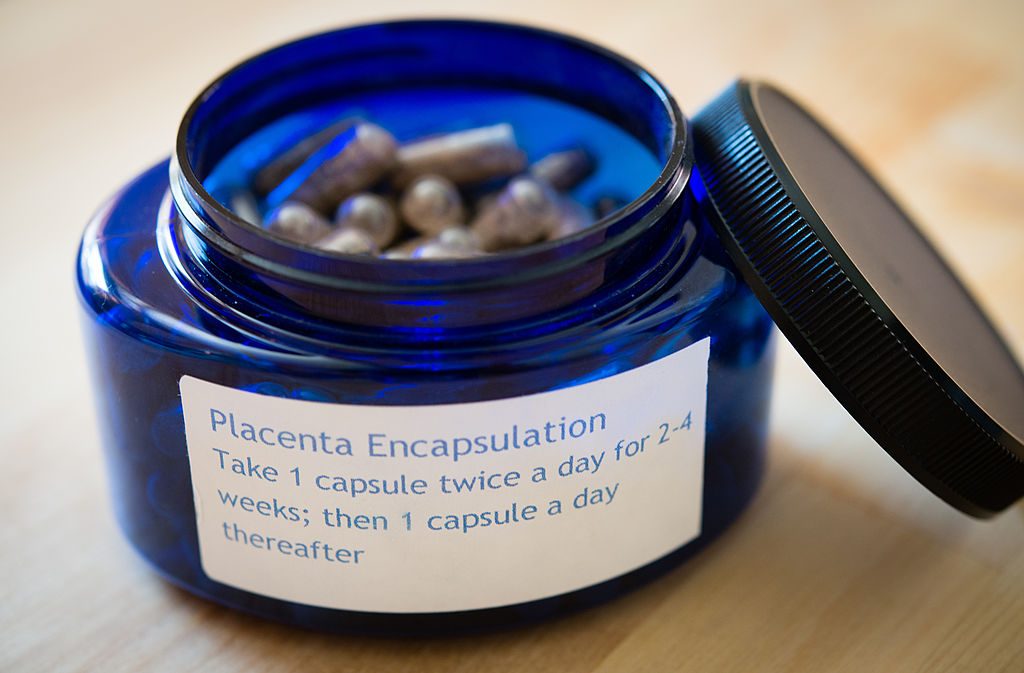
Christina Anstead’s new baby is a week old. Hudson London Anstead, the Flip or Flop star’s first child with husband Ant Anstead, arrived on Friday, September 6, and mom and baby are back at home and doing well.
Members of the big blended family — mom and dad each have two kids from previous relationships — are getting to know the newest addition to the clan. And the happy mom is engaging in a little self-care during this exciting time. Recently, she shared that she’d had her placenta encapsulated and was taking the pills as part of her postpartum recovery.
Christina Anstead opted for placenta encapsulation
In a story shared to Instagram on September 12, Anstead revealed that she’d had her placenta encapsulated — a process that involves steaming the organ that’s expelled after birth, drying it, grinding it up, and then placing into pills, according to the American Pregnancy Association.
“First time I’ve tried it — and I think these placenta encapsulation [pills] are working,” she wrote. The Christina on the Coast star also tagged Mommy Made Encapsulation, which offers placenta encapsulation services for moms in California and Texas.
Why Anstead might have tried placenta encapsulation

Anstead indicated she was new to placenta encapsulation, but she’s hardly the first celeb to tout the practice. Kim Kardashian and her sister Kourtney have raved about the pills, and Top Chef host Padma Lakshmi, actress Nikki Reed, and Mad Men star January Jones are among the other famous moms who’ve had their placenta encapsulated.
Advocates of the procedure say consuming the placenta can boost mood, reduce the risk of postpartum depression, increase milk supply, improve iron levels, and even help you lose baby weight, among other benefits.
“The placenta has a lot of different benefits … and I really felt that it improved my mood and my milk supply,” Bachelor contestant Bekah Martinez said on Instagram.
That all sounds great. But some medical professionals aren’t convinced that eating your placenta is a good thing.
What doctors say about consuming your placenta

While popping placenta pills after giving birth is becoming more common, there’s not a lot of evidence to back up the practice.
“The few scientific studies conducted on placental encapsulation have not conclusively supported the effects of this practice, nor have they completely dispelled the possibility of benefits from ingesting the placenta,” notes the American Pregnancy Association. Right now, most evidence in favor of consuming the placenta is anecdotal, the group says.
The CDC says women should skip placenta encapsulation, since there’s a risk of transmitting an infection to a newborn, as the process of steaming and drying the placenta might not kill all pathogens.
Jen Gunter, an OB/GYN based in California, said that there’s little evidence to support eating the placenta and that there’s no agreed-upon method for safely creating the capsules.
“[A] novel therapy based on anecdotes, with no standardized — not to mention safe — method or preparation, is no answer,” she wrote in an article for the New York Times. “We know so little about eating placenta that we don’t even know what we don’t know.”